- Home
- Sarah Woodbury
[The Lion of Wales 01.0] Cold My Heart Page 2
[The Lion of Wales 01.0] Cold My Heart Read online
Page 2
She closed the door to the dining hall. It had no lock, but since the cloister could be accessed by four other entrances, it would have been futile to try to stop the men from reaching it. They hadn’t found it yet, but perhaps that was because the church and food stores were keeping them occupied. They would ransack them and then turn their attention to the women. The Welsh were hardly more than animals to the Saxons, and they treated them as such.
Nell was relieved to see Bronwen and Mari, a cluster of sisters in their wake, hustling towards the chapel from the dormitory entrance. Nell intercepted them at the chapel door. “Thank the Lord you’ve come!” She grasped Mari’s hand and squeezed it, trying to convey her relief and reassurance.
Mari leaned forward and spoke low, so as not to alarm the other women. “What’s happening, Nell?”
Nell let the rest of her sisters file inside the chapel before replying. “The worst. I must see to those in the infirmary. Some might be well enough to travel with us. Perhaps I can hide the rest.”
“I’ll come with you,” Mari said.
Nell shook her head. Mari’s eyes were too wide, and her hair had come loose around her shoulders, a match in color to Nell’s, although Mari’s red-tinged strands were shot with grey. “No. Stay inside the chapel. Without you, the younger sisters will fall to pieces. Bar the door until I get back. If I don’t return within a count of one hundred, you must go with our sisters into the tunnel beneath the crypt.”
“I can’t leave you!”
“You can and you will.” Nell’s heart pounded in her ears but she fought the rushing sound and the panic, determined to hide her feelings so as not to upset Mari further. Mari was soft-hearted, which is why she mothered the younger novices, but not one to take charge. There was no one else to lead if Nell didn’t. “But I hope you won’t need to.”
Without waiting to see if Mari obeyed her, Nell dashed towards the entrance to the infirmary, situated at the very rear of the complex and isolated from the rest of the living quarters by a narrow passage, in case a quarantine was ever necessary. The sisters could access the room from the herb garden beyond, and Nell had a secondary thought that her sisters could flee that way, if the tunnel proved impassable.
Nell pushed at the thick oak door to the infirmary and froze on the threshold. Hell on earth stared her in the face. Blood ran from the beds to the floor, soaking the undyed wool blankets a deep red. The half dozen sisters who’d lain under her care, along with the elderly sister who watched over them at night, had been murdered as they slept. The far door that led to the outside world bumped against the inner wall, moving in the gusting wind. Beyond, darkness showed. She couldn’t risk escaping with her sisters that way, not with the men who’d done this so close. Nell stared at the carnage, then spun on her heel and fled back to the chapel.
Mari had disobeyed, hovering in the doorway to wait for Nell’s return. “What is it?” Mari asked when Nell reached her.
“They’re dead.” Nell pushed Mari into the chapel, even as she looked over her shoulder at the first Saxon soldiers spilling into the cloister, torches blazing in their hands.
“You there!” A soldier said, in Saxon.
“Hurry!” Mari’s voice went high.
Nell slammed the door shut and dropped the bar across it. As more shouts filled the cloister, she faced the other women. Mari stood three paces away, taking in huge gulps of air, her hand to her heart. Nell’s lungs refused to properly fill with air either.
A young voice piped up from the rear of the group. “What about the rest of our sisters?”
Someone thudded a fist on the door. “Open up!”
Nell set her jaw and grabbed a candle from a shrine to St. Tomos before pushing through the small group of women and girls. “We can’t help them.” She led the way down the steps into the crypt, trotting past the ancient tombs, the voices of the soldiers fading behind them the deeper they went.
King Arthur had commissioned Llanfaes Abbey upon the death of his beloved wife, Gwenhwyfar. Her grave lay in the church, which the Saxons were sacking even now. The chapel was older, far smaller, and had served the people of Anglesey since Christianity came to the island, back when the Romans ruled it. Rather than pull the chapel down, King Arthur had constructed his abbey around it—and refurbished the Roman tunnel that ran beneath it, and which matched the one underneath Garth Celyn.
Some might have said that the king was overly cautious to have expended so much effort on the chance that a hidden escape route might one day be needed. As far as Nell knew, none ever had, either here or at Garth Celyn—at least, not until today. Given the actions of the Saxons over the last month, King Arthur was proving not only cautious, but prescient.
Maybe he saw too.
The convent itself sat a hundred yards from the edge of the Menai Strait, so that King Arthur could look across the water to the spot where he’d buried his wife. A current of air bringing the smell of damp and mold wafted over Nell as she approached the entrance to the tunnel. The near constant autumn rain on Anglesey, coupled with having built so close to the sea, meant they couldn’t stop the water from seeping between the stones.
“Here it is.” Nell came to a halt in front of a blank wall.
“Here what is?” Mari peered over Nell’s shoulder at the unadorned stones.
“The entrance,” Nell said. “I need more light.”
Someone raised a torch so it shone at the wall. Nell handed her candle to Mari and then pressed both hands on a rounded stone at waist height. With a scraping sound, the door swung open on its central pin, revealing darkness beyond. The tunnel that led from the crypt stretched north, under the protective wall of the convent and beyond.
“We have to go inside?” Bronwen said. “What if there’s no way out! We’ll die in there!”
“The dark can’t hurt you,” Nell said. “Saxon soldiers most definitely can.”
“But how do we know—”
Nell grabbed Bronwen’s arm. She’d never thought of Bronwen as one of the more outspoken novices, but that was proving the case tonight. “Because all the sisters in the infirmary are dead, slaughtered as they slept. I don’t want that to happen to you!”
“But Lord Modred wouldn’t—”
Nell cut her off again. “It’s time to grow up, Bronwen. All of you.” Nell gazed at the face of each girl in turn. “It doesn’t matter if you support Lord Modred’s claim to the throne, or King Arthur’s resistance. Both sides have committed atrocities in this war. Do you want me to list all the religious houses the men out there—and others like them—have sacked? The villages they’ve destroyed? The women they’ve raped?”
Bronwen shook her head uncertainly.
“If you don’t want to be one of them,” Mari broke in, “I suggest you do as Sister Nell asks.”
“Yes, sister.” Bronwen kept her eyes downcast.
Nell turned away; she didn’t think it was her imagination that her sisters gave her more space now than before. It wasn’t their fault they didn’t know what went on beyond the walls. Many of them had lived at the convent their whole lives. At fifteen and newly married, she’d been as ignorant and innocent as Bronwen. But Nell had come to Llanfaes as an adult, ten years ago at the death of her husband and her two little boys, four year old Llelo and infant Ieuan.
She’d seen—and she’d seen—what men could do.
Once inside the narrow passage, Nell let the others file past her, Mari in the lead still carrying the candle. Nell then pulled at the door and allowed it to close with a gentle click. Her shoulders sagged in relief that they were safe, at least for now. At worst, she was wrong about Wulfere’s men, and Annis could administer to Nell whatever penance she chose for leading her sisters astray and into the wild in the middle of the night. As unpleasant as that might be, Nell wished for it.
But she wasn’t wrong. The scent of smoke, from a source not as far off as she might like, drifted from the chapel through a crack underneath the door, pulled into the tunnel
by the open air at the far end. Without further hesitation, Nell hefted her skirts and trotted after Mari.
“Are we almost there?” Mari asked when Nell reached the front of the line of women.
“It isn’t much farther,” Nell said. “Before her death, Abbess Alis entrusted me with the secret of the tunnel. As soon as the Saxons landed on Anglesey, I came here to make sure the tunnel hadn’t collapsed. That was some months ago, of course.”
Mari nodded, and then said, her voice so low Nell could barely make out the words, “Do I smell smoke?”
“I fear they are firing the chapel,” Nell said.
“Why would they do that?” Mari said, and then answered her own question before Nell could, her voice flat and accepting. “Because they couldn’t open the door. They think we’re still inside.”
Nell canted her head, agreeing, though not wanting to give more emphasis to Mari’s guess than that.
But Mari wasn’t finished. “Without this tunnel, our choice would have been to die, or to surrender to the soldiers.”
“Llanfaes is an abbey patronized by King Arthur,” Nell said. “Wulfere sees nothing wrong with leaving no one alive to remember it.”
A hundred steps later, they turned a corner, and the tunnel began to slope upwards. Mari’s torch reflected off the wooden beams that supported the roof and then finally shone on the trap door that led to one of the Abbey’s outlying barns.
“This is it?” Mari said.
“Yes.” The height of the tunnel had shrunk to just above Nell’s head. With the flat of her hand, she pushed up on the square of wood, three feet on a side, which loosened and then popped free with a snap.
Nell froze, but after a count of ten, she couldn’t see or hear anything amiss. She shoved the cover to one side and grasped the edges of the opening. With a boost from Mari and another sister, she pulled herself out of the tunnel and into a sitting position on the floor of the barn.
Hay lay scattered about in the stall in which she found herself. While the hay loft above her head was full, the horse stalls were empty. They used this barn only at harvest time and when the overflow from the Abbey’s visitors was such that there was no more room for equine guests in the Abbey’s stables. Nell got to her feet and walked to the far wall. Hidden in plain sight among the tools and farming implements was a short ladder. She removed it and brought it back to the hole.
“I hope we’ll be safe here for the rest of the night.” Nell looked down on Mari’s upturned face. “Let’s get them into the loft.”
* * * * *
It wasn’t quite light when Nell slipped through the barn door. It creaked, and the wind banged it back against the jam, stilling Nell at the noise. Then she reminded herself that the entire barn was a half century old and patched here and there with scraps of wood or wattle and daub, when using wood seemed a waste of resources. A little creaking and banging was a given.
She’d left Mari in charge of their sleeping sisters, every one exhausted from the events of the night. As the sky lightened, Nell had noted smoke rising from the convent a half-mile away and had felt obliged to discover what had passed there in their absence: to see if the soldiers had left, and if any of her sisters had survived.
Mari had begged her to stay, fearing for her life if she went out, but Nell thought that daylight might bring some measure of security—that the soldiers wouldn’t risk attacking a woman on the open road. To be safer, she’d removed her habit and traded it for a patched-together dress and cloak from one of the younger nuns-to-be who hadn’t yet committed to her vocation.
Nell hadn’t wanted to sleep anyway, although she hadn’t told Mari why. She was afraid that the dream of King Arthur’s death would come again, and she couldn’t cope with seeing it—not with what had happened to her sisters—not with the power of the Saxons so evident. Admittedly, it took far less strength to overpower a convent than to kill a king, but to live through one horror only to dream another immediately after was more than Nell could bear just now. At least with her sisters, she’d taken action. That she could find a way to help King Arthur seemed as out of reach now as it ever had.
A bird chirped to Nell’s left, a cheery counterpoint to the staccato of her heart. She gazed across the brown fields, harvested this autumn to the advantage of the Saxons instead of the Welsh, since the soldiers had captured the island in early September, intending to deprive the mainland of food. The convent continued to smoke, wisps spiraling skyward in the murky dawn. Nell braced herself for the effort—more emotional than physical—and set out towards what had been her home.
A short time later, she circled around to the east of the convent and crouched in the grass, screened from the entrance by a fence and blackberry bramble. The front gate of the convent sat wide open, revealing churned earth and grey stone beyond. From the looks, the Saxons hadn’t fired the church itself, just the inner chapel which Nell couldn’t see from her present position.
What she could see were several bodies sprawled in the dirt, two inside the gatehouse and a third ten paces from Nell’s hiding place. That body lay face down in the mud. Nell assumed this sister was dead along with the others until the woman moved a hand. Nell sprang to her feet, sprinted the distance between them, and fell to her knees beside the woman. She turned her over to reveal Ilar’s battered face.
Ilar opened her eyes. “Nell.” She raised her hand to touch Nell’s chin and then dropped it.
“What—?” Nell stopped. It was pointless to ask what had happened. Any fool could see it.
“Annis is dead. All the others,” Ilar said. “I thought you died in the chapel.”
“We used the tunnel. Mari and some of the novices are safe in the barn this side of Coed Mawr.”
“Coed Mawr?” Ilar lifted her head as if she wanted to stand and come with Nell; as if she hadn’t bled out through the long gash along her right side. “No—” She fell back and moaned, rocking her head from side to side.
“What’s wrong? ‘No’—what?” Nell grabbed Ilar’s shoulders, wanting to shake her, but her hands came away bloody. She stared at her fingers, and then at Ilar’s face. Ilar had closed her eyes again.
“They know of it.” Ilar just managed to get out the words. “Annis told Wulfere about the tunnel—” Her head sagged to one side, spent.
Nell put a hand to Ilar’s neck. Her pulse faltered and then stopped. Nell sat back on her heels, straightened Ilar’s dress, and wiped her hands on the damp cloth of the skirt. Her stomach rebelled to know that even though no trace of blood remained, she could still feel it on her fingers.
Swallowing hard, she pushed the thought away. She had no time for a more proper remembrance and rose to her feet, searching the landscape for any sign of Wulfere’s solders. Why did I leave the barn? They’ll have no chance without me!
No movement caught her eye, either at the convent or in the distance, but then—There! Along the road! A company of Wulfere’s men rode northeast, away from their camp and towards the spot where Nell had hidden her companions.
“No!”
Nell screamed the word. Knowing it was useless, that she’d never reach the barn in time, but unable to stop the cry or her tears from tumbling down her cheeks, Nell ran back the way she’d come. She stumbled and sobbed through the muddy fields and stands of trees, only staying on her feet over the rough terrain because she couldn’t bear not to—until reason reasserted itself.
She pulled up, having run two-thirds of the distance back to the barn. Breathing hard, as much from horror as from the exertion, she rested her cheek against the smooth bark of a willow tree, cool against her flushed face. She tightened her arms around the slender trunk, holding on for dear life, and gazed across the last two hundred yards to the entrance to the barn.
She had led her sisters to safety, only to abandon them to their fate. The completeness of her failure overwhelmed her as Wulfere’s soldiers hauled the helpless girls and women out of the barn, arms wrenched behind their backs. When Wulfere’s men h
ad pillaged and burned the convent the night before, the majority of the women they’d encountered had been older or weakened like those in the infirmary. These were more to their liking.
Her sisters’ screams echoed across the fields and into her ears; Nell sank to her knees in the long grass, her arms around her waist and her head bowed. She couldn’t help them nor watch any longer. She leaned forward and sobbed.
Chapter Three
4 November 537 AD
“Get over here, Myrddin!”
I urged my horse across the clearing, through the ankle-deep snow and towards Gawain, the captain of my lord’s guard. He resembled a greyhound, whip-thin but muscled …
“I fear the weather will turn worse this evening.” Lord Aelric tucked his fine, grey cloak closer around himself. “You’ll have a cold ride home.”
Myrddin blinked at the man, his breath choking him, trying to recover from the sudden shift in perspective. He gritted his teeth, stunned by the dramatic transition from dream state to consciousness. The vision of his defeat at the church had come so clearly to him, passing in front of his eyes with such intensity that he’d forgotten where he was. That had never happened to him before.
“Rain in the lowlands; snow in the hills,” Myrddin said, in Saxon, thankful that Aelric hadn’t noticed his inattention.
The battle had occurred only in his mind—in a flash of understanding—and hardly ten heartbeats had passed in the real world in the time it took for him to fight and die inside his head. Myrddin took in a deep breath to ease his pounding heart. The vision had been clearer and more real than any he’d experienced before. Myrddin knew, even if he was loath to admit it, that his dreams pressed on him more every day. They were getting worse—not to mention more demanding in their urgency that he do something. Yet as little more than a journeyman knight in the king’s company, he didn’t know what that something might be.

 The Good Knight
The Good Knight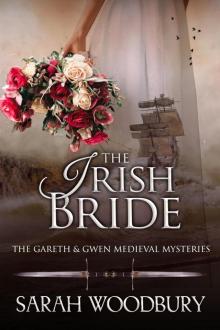 The Irish Bride
The Irish Bride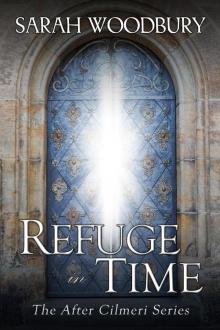 Refuge in Time
Refuge in Time Masters of Time
Masters of Time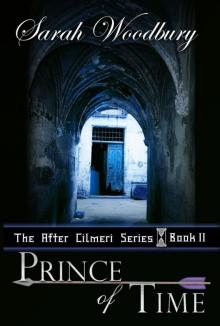 Prince of Time (Book Two in the After Cilmeri series)
Prince of Time (Book Two in the After Cilmeri series) The Favored Son
The Favored Son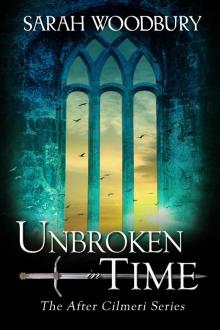 Unbroken in Time
Unbroken in Time![[The Lion of Wales 01.0] Cold My Heart Read online](http://i1.bookreadfree.com/i/03/22/the_lion_of_wales_01_0_cold_my_heart_preview.jpg) [The Lion of Wales 01.0] Cold My Heart
[The Lion of Wales 01.0] Cold My Heart The Uninvited Guest
The Uninvited Guest The Pendragon's Blade (The Last Pendragon Saga Book 2)
The Pendragon's Blade (The Last Pendragon Saga Book 2)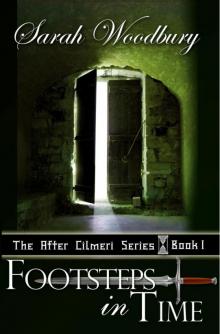 Footsteps in Time
Footsteps in Time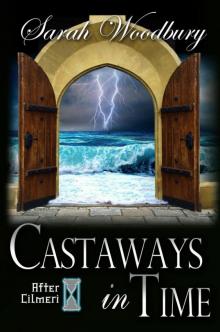 Castaways in Time (The After Cilmeri Series)
Castaways in Time (The After Cilmeri Series) Winds of Time
Winds of Time Of Men and Dragons (The Lion of Wales Book 3)
Of Men and Dragons (The Lion of Wales Book 3) Champions of Time
Champions of Time The Pendragon's Challenge (The Last Pendragon Saga Book 7)
The Pendragon's Challenge (The Last Pendragon Saga Book 7) Rise of the Pendragon (The Last Pendragon Saga Book 6)
Rise of the Pendragon (The Last Pendragon Saga Book 6) The Worthy Soldier
The Worthy Soldier The Last Pendragon (The Last Pendragon Saga Book 1)
The Last Pendragon (The Last Pendragon Saga Book 1) The Fallen Princess
The Fallen Princess The Pendragon's Champions (The Last Pendragon Saga Book 5)
The Pendragon's Champions (The Last Pendragon Saga Book 5) Cold My Heart: A Novel of King Arthur
Cold My Heart: A Novel of King Arthur A Long Cloud (The Lion of Wales Book 4)
A Long Cloud (The Lion of Wales Book 4) Frost Against the Hilt (The Lion of Wales Book 5)
Frost Against the Hilt (The Lion of Wales Book 5) Daughter of Time: A Time Travel Romance
Daughter of Time: A Time Travel Romance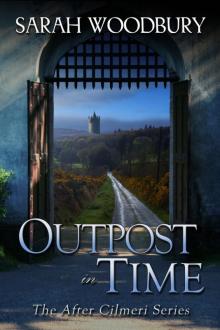 Outpost in Time
Outpost in Time Shades of Time kobo
Shades of Time kobo The Pendragon's Quest (The Last Pendragon Saga Book 4)
The Pendragon's Quest (The Last Pendragon Saga Book 4) The Unexpected Ally
The Unexpected Ally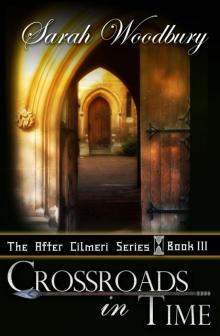 Crossroads in Time (The After Cilmeri Series)
Crossroads in Time (The After Cilmeri Series) The Viking Prince
The Viking Prince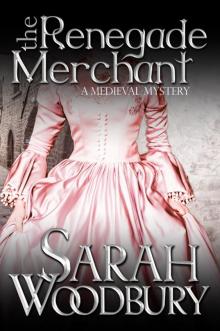 The Renegade Merchant
The Renegade Merchant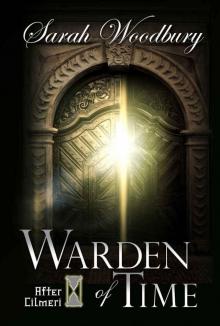 Warden of Time (The After Cilmeri Series Book 8)
Warden of Time (The After Cilmeri Series Book 8)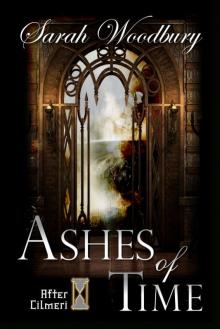 Ashes of Time (The After Cilmeri Series)
Ashes of Time (The After Cilmeri Series)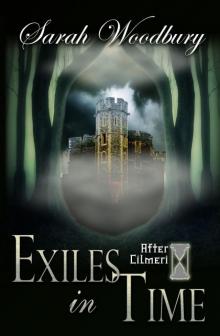 Exiles in Time (The After Cilmeri Series)
Exiles in Time (The After Cilmeri Series)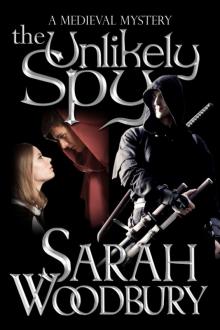 The Unlikely Spy
The Unlikely Spy The Fourth Horseman
The Fourth Horseman The Oaken Door (The Lion of Wales Book 2)
The Oaken Door (The Lion of Wales Book 2) Song of the Pendragon (The Last Pendragon Saga Book 3)
Song of the Pendragon (The Last Pendragon Saga Book 3) Champions of Time (The After Cilmeri Series, #13)
Champions of Time (The After Cilmeri Series, #13)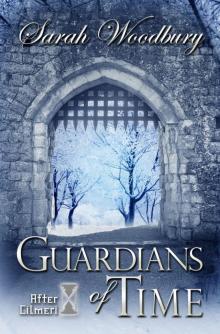 Guardians of Time
Guardians of Time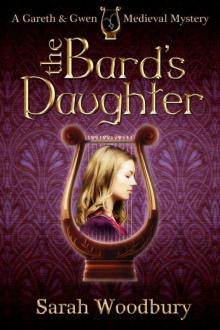 The Bard's Daughter (A Gareth and Gwen Medieval Mystery)
The Bard's Daughter (A Gareth and Gwen Medieval Mystery)